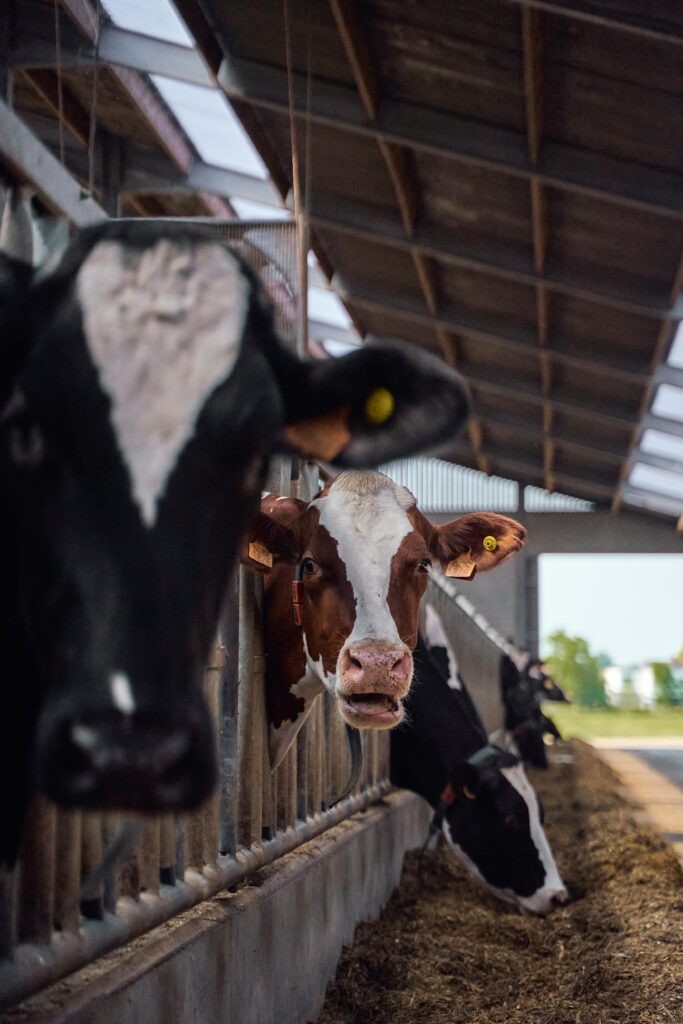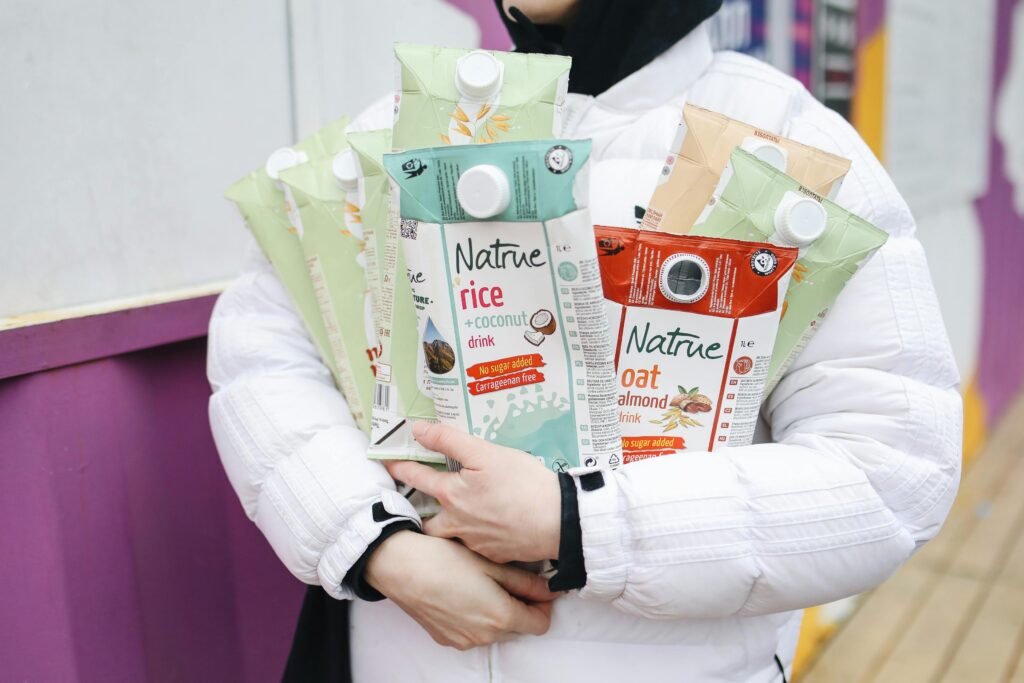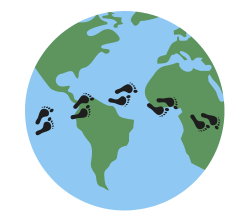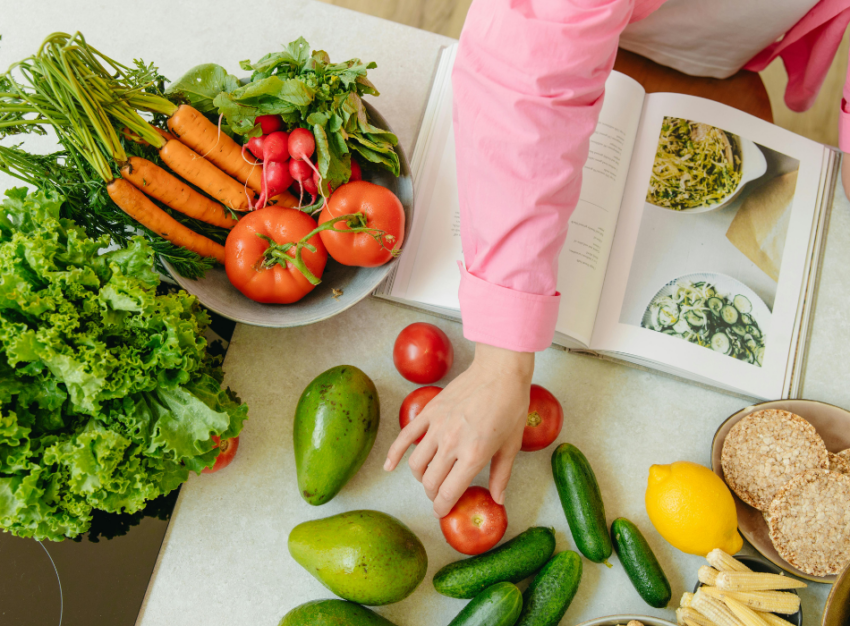Last year, I went on a date with a vegan. When I told him that I’d been vegetarian for quite a while, he asked why I’d never gone vegan. The reasons that I gave sounded like excuses—for example, that I would need to find vegan replacements for some of the staple foods I ate regularly.
At the time, I’d been vegetarian for 11 years. Eleven years of vegetarianism smacked of complacency, of being okay morally with my dietary choices—or at least of avoiding thinking about them too hard. The situation got me thinking about how easy it is for us to ignore the climate and ethical implications of our diet and other habits.
Earlier this year, I decided I would make some changes to reduce my consumption of animal products—particularly dairy, the biggest culprit for me. So thank you to the guy from the date for getting me started on this train of thought and action!
Motivations for going vegan

My reasons for moving towards veganism relate to both protecting the environment and animal welfare. It also feels a bit like hopping on a trend (have you seen how many people are ordering plant-based milk in their coffee these days?).
As I mentioned, I’ve been vegetarian for a long time. For me, it’s mostly about the animals, but the fact that it’s better for the environment is a bonus. I was already relatively aware of the environmental impacts of animal agriculture—things like excessive land and water use, deforestation in the Amazon and high emissions of greenhouse gases, particularly methane—but watching the documentary Cowspiracy helped drive this point home.
On the animal welfare side, I’m torn because animal rights activists would say to consume zero animal products, while environmentalists might say it’s okay to just reduce your consumption. I need to do more self-education on how dairy and egg production work—that might be enough to push me towards full veganism.
Some people go vegan for health reasons. Vegan diets tend to be higher in some nutrients—like fibre, potassium, magnesium, folate, and vitamins A, C, and E—and to help with weight loss and preventing heart disease and diabetes. This, of course, is if you plan your meals well. Vegans can still eat many junk foods like some chips, chocolate bars and cookies, as well as highly processed meat alternatives.
Dietary changes are a touchy topic. Food relates to tradition, family, memories and culture, and it brings us joy. It’s hard to make changes to what you eat, and you need to have a strong motivation for why you’re doing it. Particularly with a strict diet like veganism, it can be easy to focus on what you’re cutting out and not able to have. I think it would help to shift your mindset to what you can have and to trying new foods and recipes.
Is vegan the same as plant-based?

This is a question that I’ve wondered about for a while. I’ve always thought of the term “plant-based” as a marketing ploy, emphasizing the positive side of what you can eat as opposed to what you’re cutting out.
It turns out that in a plant-based diet, you eat mostly plants (like fruits and vegetables, grains, legumes, and nuts and seeds). However, someone following this diet may eat animal products occasionally. “Plant-based” has a health focus and generally just affects diet. If you’re a strict vegan, double-check the label for products called plant-based since they may not be completely vegan (though they should be).
Veganism means cutting out all animal products from your diet and from other aspects of your lifestyle, like your clothing and personal care products. It’s often done for ethical reasons, but can also be done for environmental or health reasons. It’s about avoiding animal exploitation as much as possible.
My process for transitioning to veganism
I’ve been using a gradual, systematic approach to reduce my consumption of animal products. I realize that may not work for everyone—some people may prefer to make the change all at once or to do a month-long challenge like Veganuary.
I’m not currently trying to go 100% vegan, though I may do so in the future. I’ve started by making changes to the foods I eat at home because those are the easiest to control.
Doing an inventory of non-vegan foods
An initial step I took was doing an inventory of all the foods in my pantry and fridge. I carefully checked the labels on products like granola bars, cereal and crackers to make sure they were vegan. For products that aren’t vegan, I am finishing them up then will look for vegan versions.
Changes I’ve made so far
Here are some of the main vegan swaps I’ve made so far.
- I’ve switched to drinking oat milk at home and ordering oat milk in coffees.
- I’ve switched to eating almond yogurt.
- I’ve switched to vegan margarine.
- I’ve gotten chia seeds to use as an egg replacement for vegan baking.
In progress changes
The change that will probably be the hardest for me is cheese. I eat it regularly at lunch on toast or crackers, and I enjoy cheesy foods like pizza, grilled cheese, and macaroni and cheese.
I’ve slowly been trying different vegan cheeses, as well as different dips and spreads that I could use as a cheese replacement. If you have any vegan cheese recommendations, please let me know!
Future changes
The other change that I will need to make is the food I eat outside the home, whether at restaurants or other people’s houses/apartments. I already don’t eat a huge amount of animal products, but when I do, it’s most often outside the home.
This will require more planning, self-control and communication with other people about my dietary choices. I think it would help to have tasty vegan snacks around so that I don’t get hungry when I’m out and buy foods on impulse!
Going vegan for the planet, the animals and ourselves
Going vegan, or even reducing our consumption of animal products, has multiple benefits for the planet, animals and our health. The transition isn’t easy, but with proper planning and discipline, it’s possible to be vegan and enjoy a healthy, happy, bountiful life!
This has been enough about me. I want to hear about you!
Where do you fall on the omnivore-vegetarian-vegan spectrum? What successes and challenges have you had with transitioning to veganism? What tips do you have for new vegans?
Categories and tags:
Share this post:


This is my favourite vegan cheese recipe! It’s easy to make in a food processor and great with crackers.
https://itdoesnttastelikechicken.com/cranberry-thyme-vegan-cheese-ball
Thanks for sharing! That sounds yummy and not too complicated. I’ll have to try it sometime!
I am also trying to eat less cheese. One of my go-tos for alternative quick and easy protein is hummus, and another is canned legumes products, such Middle Eastern/Greek gigantes beans in tomato sauce, good old baked beans (without the lard), and canned legumes soups (check out the great soups produced by the Sprague cannery in Belleville, https://www.spraguefoods.com/store – their website has a good Where to Buy/Store Locator page). Nut-based cheeses are nice, but in the long run expensive.
Yes, hummus is a good and relatively cheap alternative to cheese, along with other spreads! I’ve found a black bean dip that I like. That’s a good suggestion to try canned legume products.
I’ve tried a product made in London Ontario that is available all over Canada called Nuts For Cheese. I believe it’s made out of fermented cashews and they have a great variety available. I’m not sure how well it melts, but it’s worth trying. I know a few people that think it’s really good. It’s a little bit on the pricey side, but what isn’t these days 😂
Thanks, Mary! I will have to look for that one!